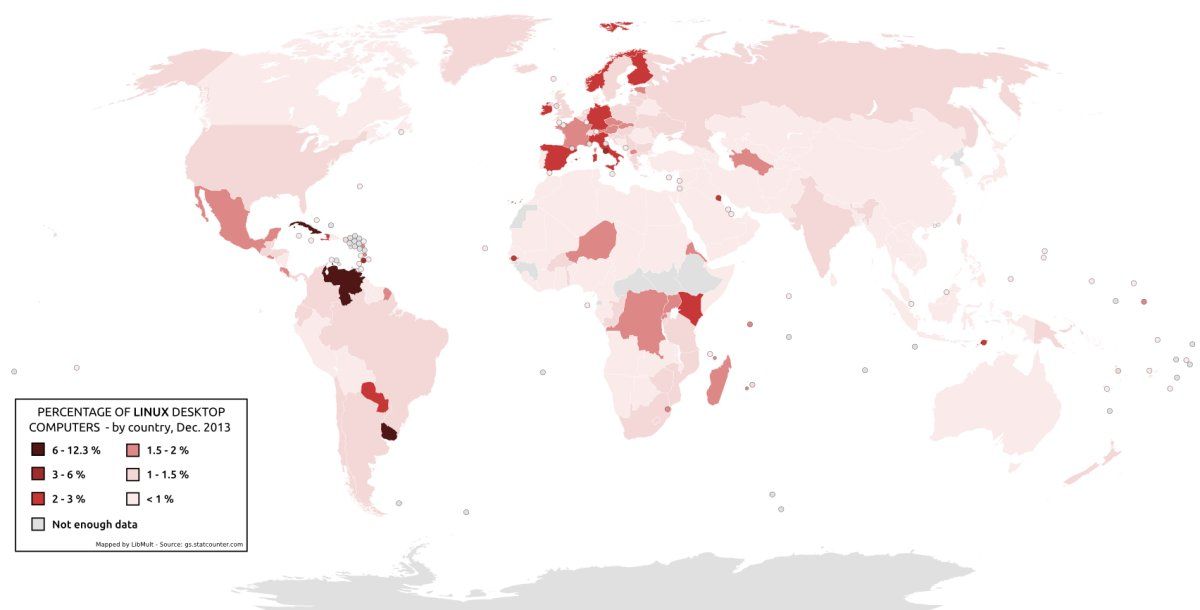As at the beginning of every year, studies are now coming out recapping all sorts of usage statistics. When it comes to operating systems, Windows 8 and its 8.1 extension have already managed to grab a share of 12% of the desktop computer market. In the world of Linux the numbers haven’t moved much, hovering around 1.5%; what’s surprising is that, at the global level, it is in Spain and certain Latin American countries where Linux is most used, with Uruguay, Venezuela, and Cuba topping the list.
These are only ball-park figures, and vary from place to place (NetMarketShare, StarCounter, w3Counter), but each indicates a similar proportion and gives us an idea of the range of use with respect to the rest of the world. Spain, for instance, has reached 2.5% of use. Spain, Norway, Germany, Italy, and Ireland are now the only European countries that top the global average.
But the surprising part is Latin America. Ecuador took its first steps in this direction several years ago, in 2008, when its president Rafael Correa decreed that the country’s public administration would only use open source software, extending to practically all official bodies and IT services of the country, and achieving milestones such as the use of the online voting service eCURUL to manage government debates.
The country that most recently has joined this movement is Uruguay, which a few days ago approved a new law to institutionalize the use of open source software in public administration and promote its use in the education sphere.

The aforementioned countries as well as Venezuela easily top 6% of the market share for desktop operating systems. In the latter case there has even been a custom Linux distribution released to propel the use of open source software in the Bolivarian Republic.
In many of these cases the stats give a blurred picture given that there are fewer computers among the broader population, which increases the proportion of Linux use among public administration and public service providers with respect to the total number of operating systems in use. Nevertheless, Linux remains an interesting substrata for the future of open source software when it comes to raising awareness and standardizing its use.
There is still a lot of ground to be covered, but very important steps are being taken toward Linux’s expansion, from the backing of the videogaming giant Valve with its Linux-based SteamOS system, to the expansion of Ubuntu to the mobile market, the two main areas toward which the entire industry should orient itself to adapt to the changes that are now occurring in consumer behavior.
Source: Muylinux






